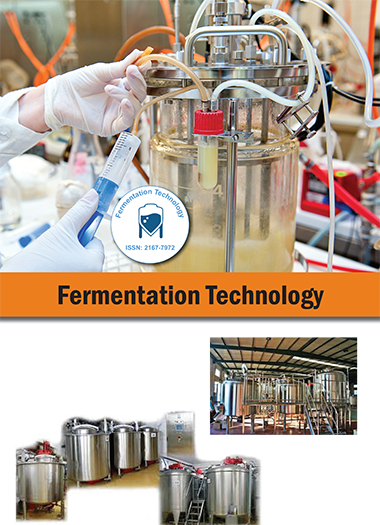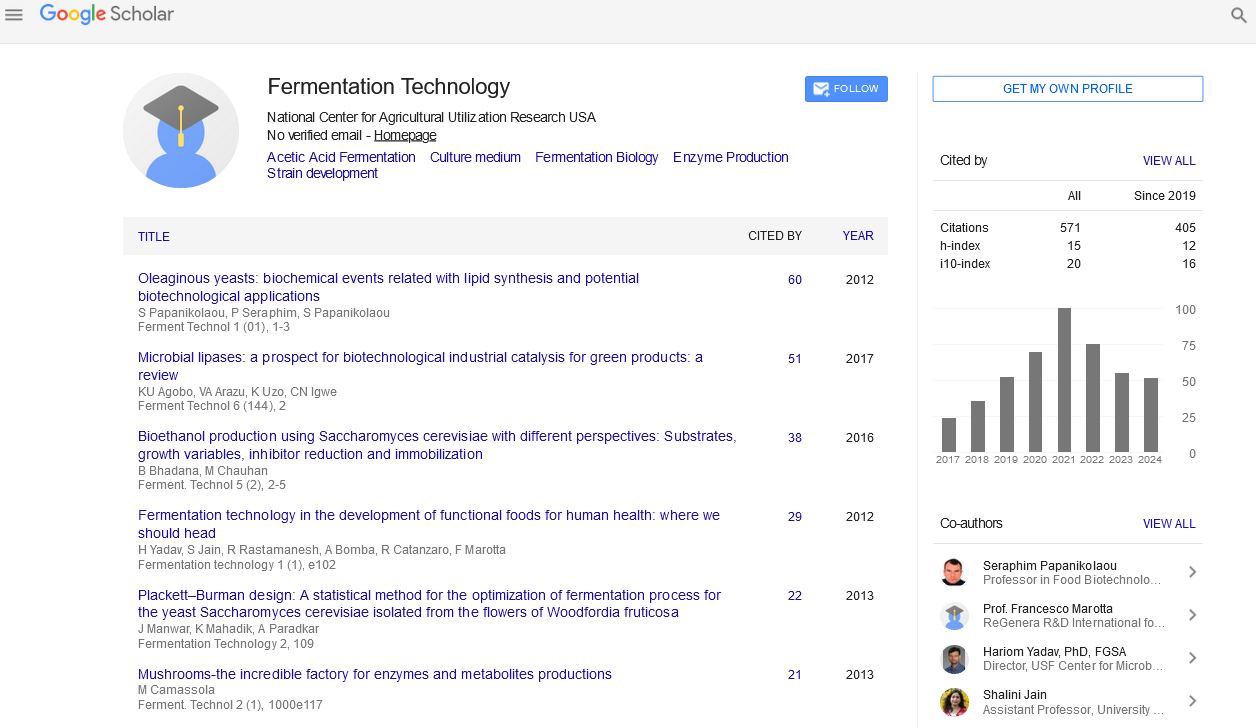Indexed In
- Open J Gate
- Genamics JournalSeek
- Access to Global Online Research in Agriculture (AGORA)
- RefSeek
- Hamdard University
- EBSCO A-Z
- OCLC- WorldCat
- Publons
Useful Links
Share This Page
Journal Flyer

Open Access Journals
- Agri and Aquaculture
- Biochemistry
- Bioinformatics & Systems Biology
- Business & Management
- Chemistry
- Clinical Sciences
- Engineering
- Food & Nutrition
- General Science
- Genetics & Molecular Biology
- Immunology & Microbiology
- Medical Sciences
- Neuroscience & Psychology
- Nursing & Health Care
- Pharmaceutical Sciences
Abstract
Increase of Rutin, Quercetin, and Antioxidant Activity during Germinated Buckwheat (Fagopyrum esculentum Moench) Fermentation
Buckwheat is gaining increasing attention as a potential functional food due to its content of bioactive compounds such as rutin, quercetin and other antioxidant substances. In this paper changes in content of rutin, quercetin and antioxidant activity in buckwheat have been measured during germination and fermentation. Buckwheat seeds were germinated for 2 days at 18°C and dried for 20 h at 60°C. Fermentation was carried out at 30°C for Bif. breve BV-B and Bac. subtilis, 37°C for Lactobacillus spp. and Bif. animalis, and 40°C for Bacillus sp. 224 B4 and Bac. subtilis B53 for 48-72 h. When the buckwheat was germinated, the content of rutin decreased from 0.17 g kg-1 to 0.1 g kg-1 and did not show the effect on increasing the content of quercetin during germination (0.18-0.19 g kg-1). However, when the germinated buckwheat was fermented with Bifidobacterium breve BV-B, Bacillus subtilis B53, and Lactobacillus buchneri, the contents of rutin and quercetin increased to 0.97 g kg-1 and 2.53 g kg-1, 0.56 g kg-1 and 0.13 g kg-1, 0.37 g kg-1 and 0.16 g kg-1, respectively. The antioxidant activities such as total phenolic compounds, total flavonoid content, DPPH radical scavenging activity and ABTS radical scavenging activity of fermented buckwheat were 3.41%, 4.28%, 65.21% and 45.46%, respectively, when Lac. buchneri microorganism was used. Lac. plantarum, Bif. animalis, and Bif. breve BV-B showed active fermentation. Overall acceptability of germinated buckwheat fermented by Bacillus sp. 224 B4, Bac. subtilis B53, Bac. subtilis KCCM11315, Bif. animalis, and Bif. breve BV-B was evaluated as good or very good. This study shows that germinated buckwheat fermented with Lac. buchneri, Lac. plantarum, Bif. animalis and Bif. breve BV-B, respectively, is promising as a health functional food.

